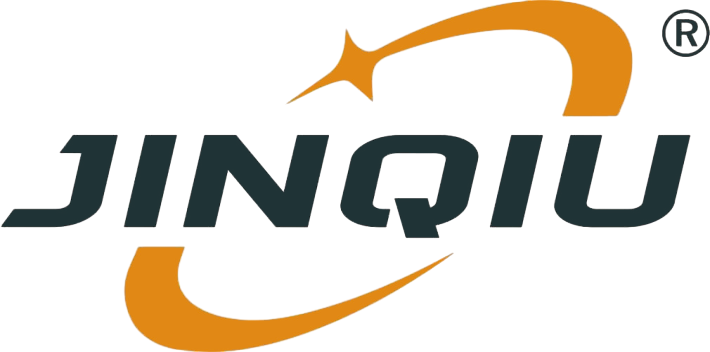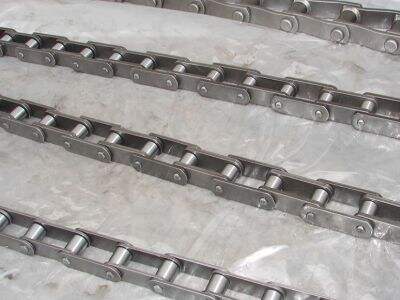The use of conveyor chains as a critical component on conveyor systems. They are very useful in the safe and easy movement of material inside factories and warehouses. There are many types of chain to choose from and here you will find what to consider the look for when looking for a best kind of chains that suit your needs. This article covers the key considerations you need to make when choosing a Conveyor Chain in the USA.
Three Conveyor Chains, Three Types of Uses
Conveyor Chains come in many kinds and the type of chain you choose for your system depends on your application requirements. Below are few of the key types of conveyor chain that you may want to know.
Roller Chains: These chains come in size between 1/4 inch to up to 3-inch sized and able to handle medium-heavy loads. They are also relatively inexpensive in cost, and simply why people implement these types of rollers to their conveyor systems every single day. These chains are so versatile, which is why they can be utilized in a lot of ways.
Engineering Class Chains: These chains are tough, used for heavy loads and harsh applications like hot or humid settings. Whether used on plastic, metal or rubber, engineering class chains are available in various sizes and strengths for machining. These are especially valuable in sectors where the strength and efficiency matter the most.
Plastic Chains: They are just as it sounds, chains completely made of plastic in different designs and dimensions. They work well with lightweight materials and small projects. For less demanding environments, plastic chains due to their bendability and light weight are often chosen.
Knowing What Kind of Chain Your System needs
If you want to select the best conveyor chain, it is necessary to consider what your system really demands.
Conveyor Chain Speed– Since chain is going through full motion in heavy duty conveyor chain, then these can only run at so quick depending on the material being moved. It is vital to have in mind the speed rating of the chain for which this fantastic device can be used as you do not want to go over its speed ratings. If you zip those gaps open, there can be problems when the work is then energetically rinsed under pressure and nearly as new, but too fast. Fill quickly the wear on the chain can see.
Payload: This is the load capacity, or the maximum weight that each chain can carry without breaking. Knowing how much weight your chain is required to hold will help ensure that it can handle the strain of the job. You need to make sure that the chain you are using is able to support your maximum load in order for it to be safe on which to operate.
Some chains are not compatible with certain materials, particularly if these substances are corrosive or abrasive. You must verify the compatibility of one model according to the manufacturer with your material before selecting a chain.
Chain Selection Considerations
When you are evaluating the needs of your system for conveyor chains, these key items will impact performance:
Speed: Conveyor chains operate best at certain speeds, and some chains are more efficient working at certain speeds. Knowing the best practise speed for your chain improves overall performance.
Weight Capacities: Chains are only safe for lifting a certain amount of weight, like we stated before. Start by estimating what the chain can take, then research the maker's data to single out a chain that suits what it is you need.
Material Compatibility: Consider the materials with which the chain will be in contact. This will enable you to choose a chain material that is resistant or non-susceptible the effective pathogens of your application. Making sure you have compatibility for the long haul of your chain.
Comparing Chain Options
Once you know what your system requires, compare different chains. So here are a few things you need to consider when comparing:
CHAIN LENGTH — As above; always know how long the chain needs to be so you don't waste money. Remember to measure your distance properly for your purchase size.
Price: Speaking of price, you will obviously need to know how much using a certain chain is going to cost you in the end. However, always keep in mind sometimes if you spend a little extra for quality, you can end up saving more in the future.
Brand: Go with a Brand that is reputable and proved to have manufactured good quality chains. With a more reputable manufacturer comes the peace of mind that your chains will be developed to meet any needs or requirements you may have and result in happiness with whatever product you choose.
Fitting and Looking After Your Chain
if you care for your chain it will last a while. The following are some useful tips that can help to get the installation and maintenance of playground in a proper manner.
Install: Correct installation, chain tension, lubrication and all. Agreement Installation properly is critical because it determines the ultimate performance and lifespan of a seal.
Maintenance: Keep your chains happy, and on time. This will make sure that you will be able to identify any possible problems before it becomes big.
Substitution: You need to substitute chains when they are damaged or worn out and prevent them from being broken due to unpredictable reasons. By regularly checking the health of your chains you save yourself downtime and smoother operations.
Finally, selecting the correct conveyor chain for your system can be difficult but it is not impossible. However, by learning about the options available, your system requirements, and considerations such as speed/material compatibility and load capacity, you can make an educated choice. At JINQIU CHAIN, you will find conveyor chains that are perfect for your application. Get in touch with us now and discover how we can help you!

 EN
EN
 AR
AR
 DA
DA
 NL
NL
 FI
FI
 FR
FR
 DE
DE
 EL
EL
 IT
IT
 JA
JA
 KO
KO
 NO
NO
 PL
PL
 PT
PT
 RU
RU
 ES
ES
 SV
SV
 TL
TL
 ID
ID
 SL
SL
 VI
VI
 TH
TH
 MS
MS
 LA
LA






